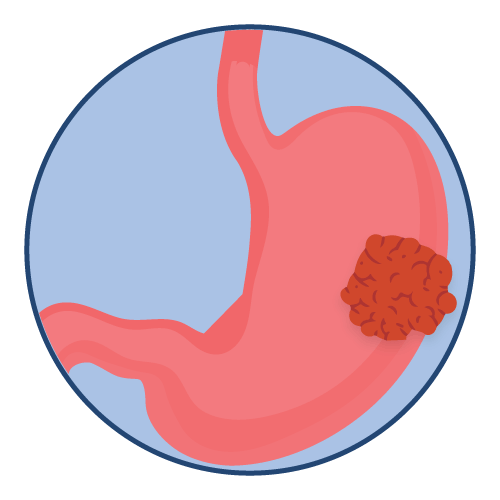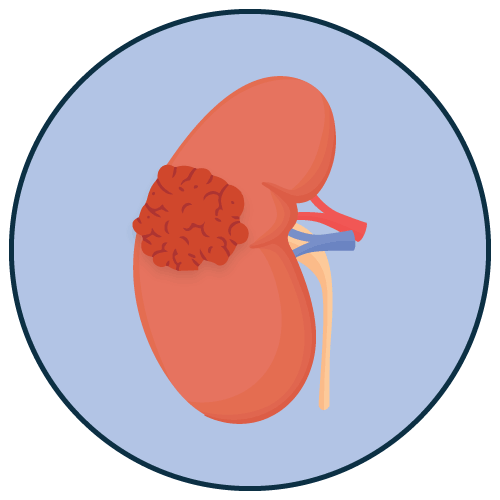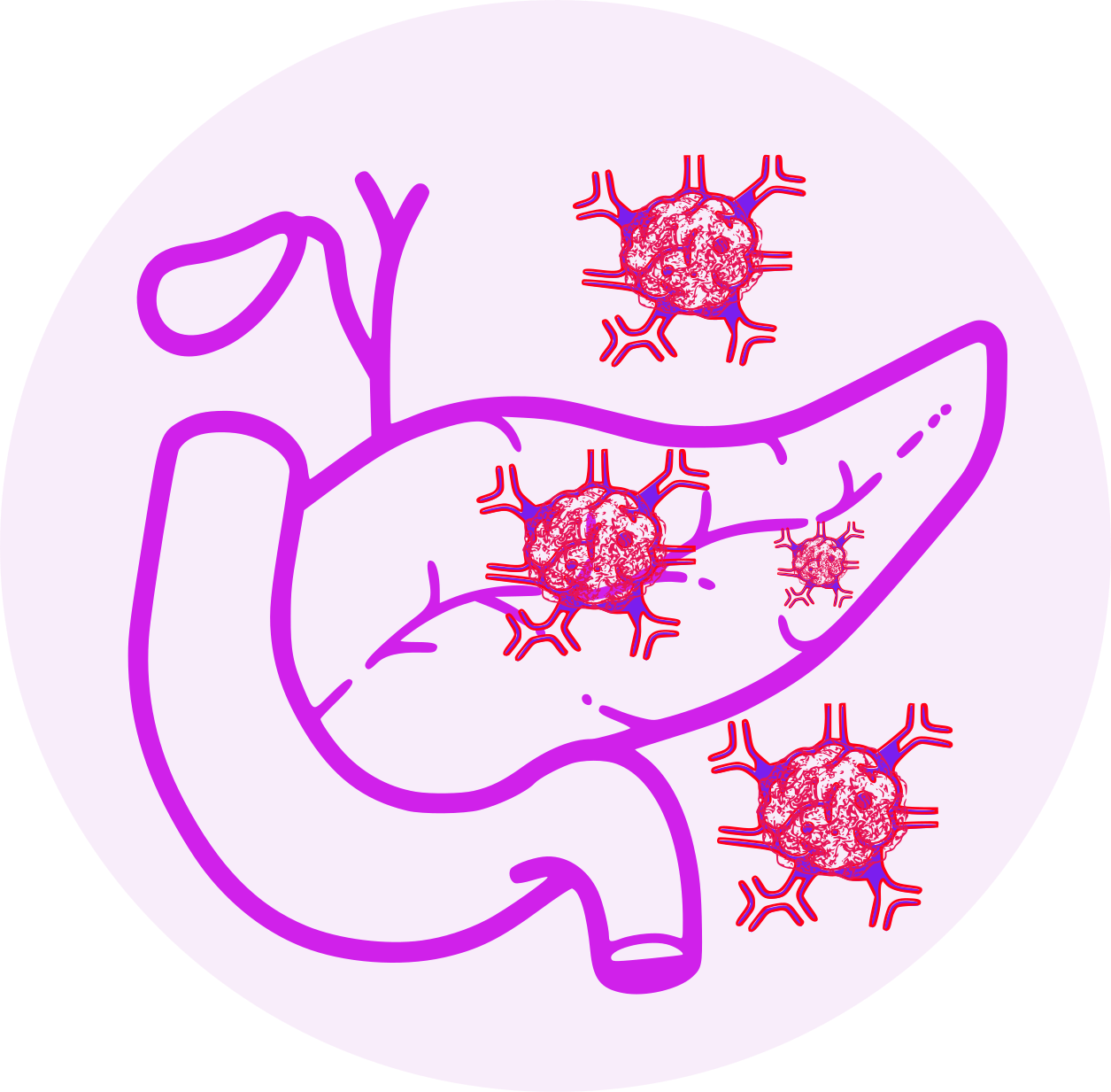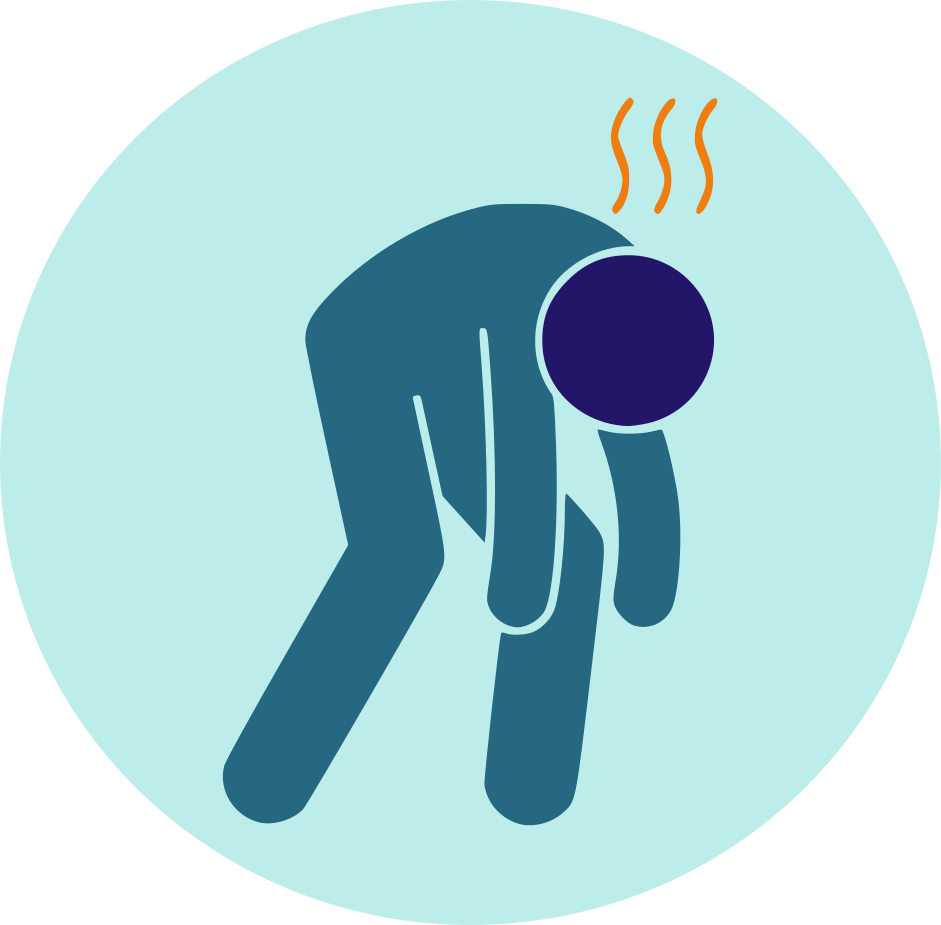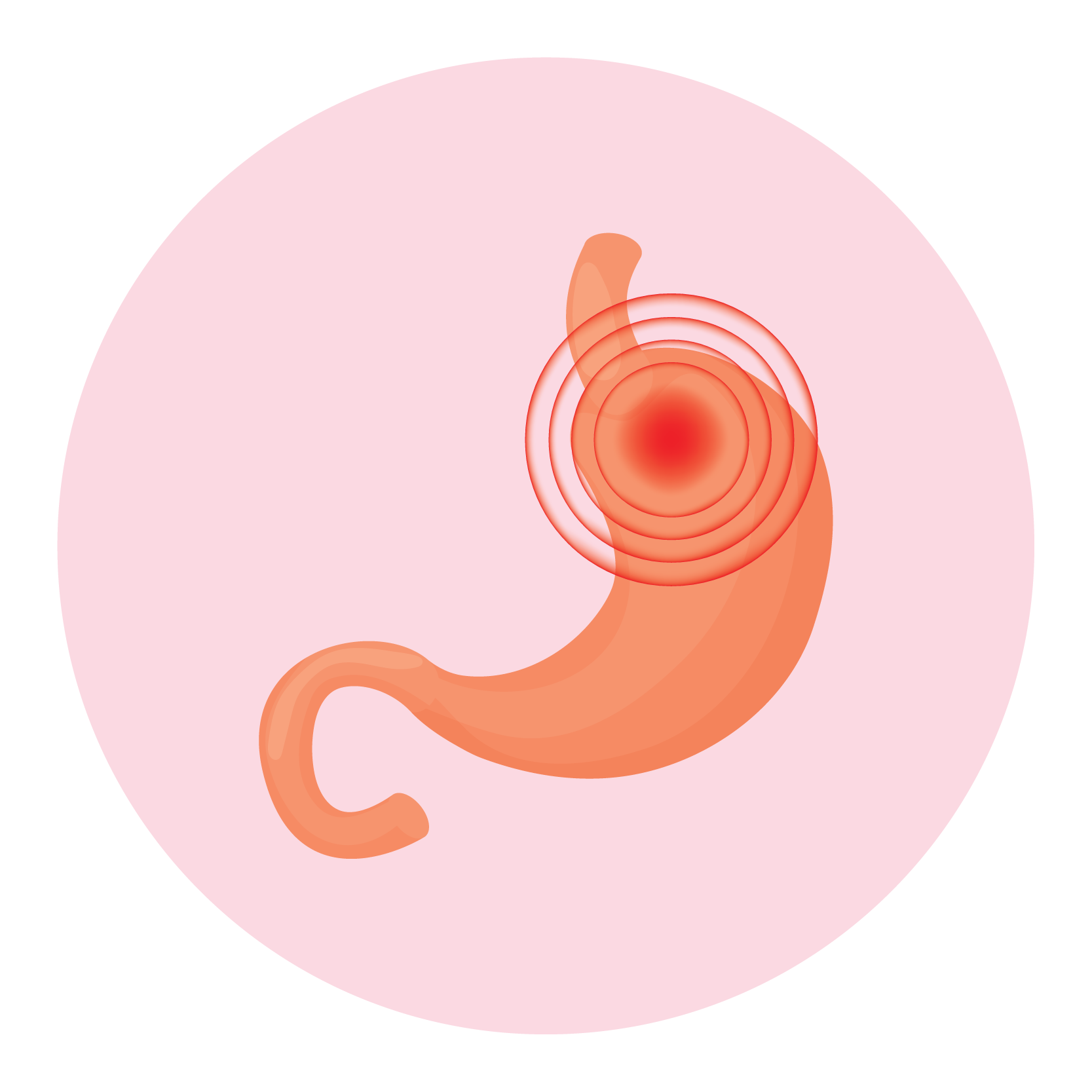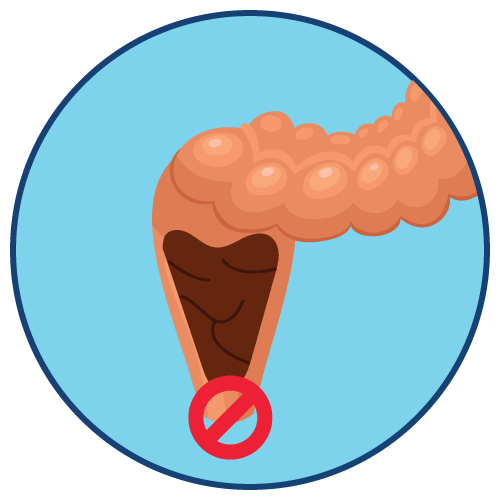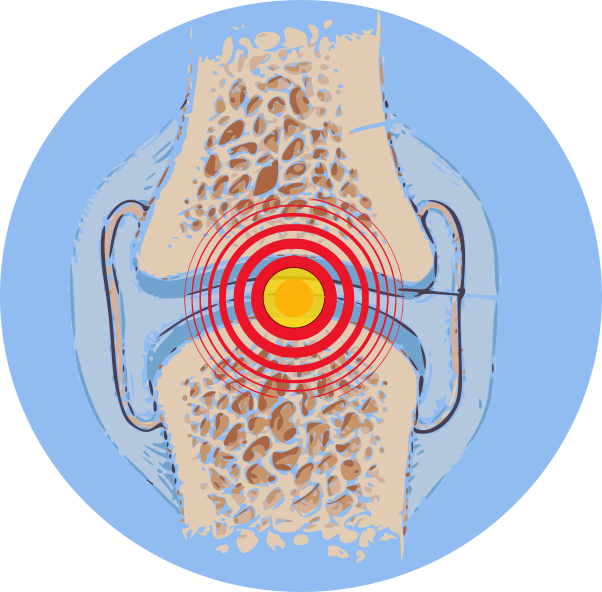| Name | Sunitinib |
| Classes |
Anticancer/Antineoplastic Agent Multikinase Inhibitor/VEGF/VEGFR Inhibitor |
| Diseases |
Cancer Kidney Cancer Pancreatic Cancer Tumor |
Sunitinib
Sunitinib is an anticancer drug from the class called receptor tyrosine kinase inhibitors. Receptor tyrosine kinase inhibitors are implicated in tumor growth, pathologic angiogenesis, and metastatic progression of cancer. Sunitinib inhibits the phosphorylation of multiple RTKs (PDGFRβ, VEGFR2, KIT) in tumor cells inhibiting their growth, proliferation and angiogenesis.
Sunitinib is a kinase inhibitor indicated for the treatment of:
- Gastrointestinal stromal tumor (GIST) after disease progression on or intolerance to imatinib mesylate.
- Advanced renal cell carcinoma (RCC).
- Progressive, well-differentiated pancreatic neuroendocrine tumors (pNET) in patients with unresectable locally advanced or metastatic disease.
- Gastrointestinal stromal tumor and renal cell carcinoma: 50 mg orally once daily, with or without food, 4 weeks on treatment followed by 2 weeks off.
- Pancreatic neuroendocrine tumors: 37.5 mg orally once daily, with or without food, continuously without a scheduled off-treatment period.
- Dose Modification: Dose interruptions and/or dose adjustments of 12.5 mg recommended based on individual safety and tolerability.
The most common adverse reactions are-
- fatigue
- asthenia
- fever
- diarrhea
- nausea
- mucositis/stomatitis
- vomiting
- dyspepsia
- abdominal pain
- constipation
- hypertension
- peripheral edema
- rash
- hand-foot syndrome
- skin discoloration
- dry skin
- hair color changes
- altered taste
- headache
- back pain
- arthralgia
- extremity pain
- cough
- dyspnea
- anorexia
- bleeding
- There have been reports of liver failure and hepatotoxicity. Before starting treatment, throughout each cycle of treatment, and as clinically necessary, monitor liver function tests. Sunitinib administration should be stopped if Grade 3 or Grade 4 drug-related hepatic adverse effects do not resolve. If patients later develop significant changes in liver function tests or exhibit other indicators of liver failure, do not restart Sunitinib.
- Women who are capable of having children should be warned about the fetus's potential risk and encouraged to avoid getting pregnant.
- Cardiac toxicity, such as a decrease in left ventricular ejection fraction to below the lower limit of normal, as well as cardiac failure and even fatalities, have been reported. Monitor patients for signs and symptoms of congestive heart failure.
- Hypertension may occur. Monitor blood pressure and treat as needed.
- Torsade de Pointes and prolonged QT intervals have been observed. Use with caution in patients who are predisposed to QT interval prolongation. When using Sunitinib, monitoring with on-treatment electrocardiograms and electrolytes should be considered.
- Hemorrhagic events, including tumor-related hemorrhage, have occurred. Perform serial complete blood counts and physical examinations.
- Thyroid dysfunction may occur. Patients with signs and/or symptoms of hypothyroidism or hyperthyroidism should have thyroid function testing performed and be treated according to standard medical practice.
- Sunitinib therapy should be discontinued temporarily in patients undergoing major surgical procedures.
- Animal studies revealed evidence of adrenal hemorrhage. In the event of a stressful event such as surgery, trauma, or a severe infection, keep an eye on your adrenal function.
Contraindication
None known.
None known.
None known.
 Bangla
Bangla English
English